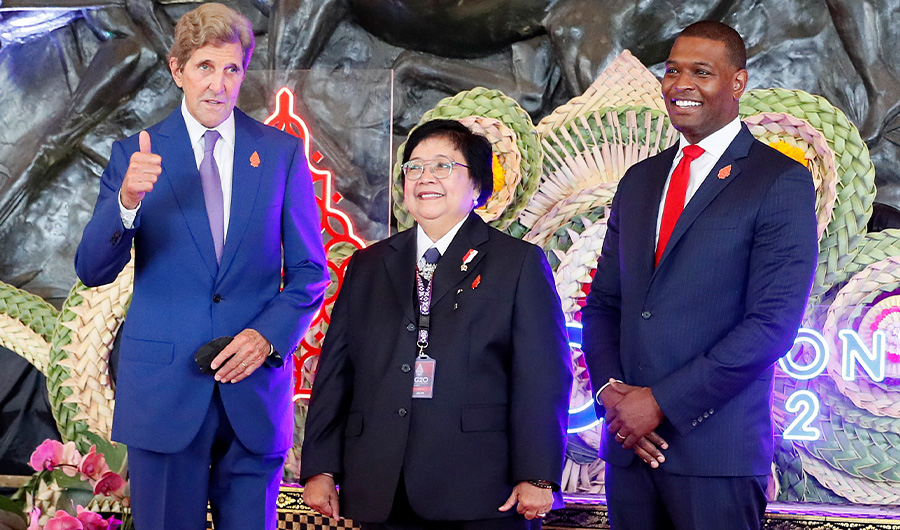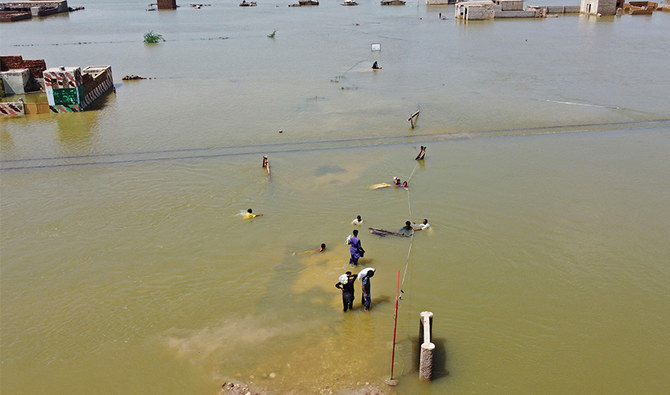Bali, Indonesia: Group of 20 chair Indonesia warned environment officials from the world’s leading economies Wednesday they must act together to combat a warming planet or risk plunging it into “uncharted territory.”
The call came at a one-day meeting on the resort island of Bali, at the end of a month in which more than 1,000 people died in Pakistan from flooding blamed on climate change and a crippling drought exacerbated by a record heat wave spread across half of China.
In opening remarks, Indonesian Minister of Environment and Forestry Siti Nurbaya Bakar told delegates “global environmental problems require global solutions,” otherwise the planet could end up in a situation “where no future will be sustainable.”
“We cannot hide from the fact that the world is facing increasingly compounding challenges,” she said, referencing energy price spikes and global food shortages.
“We know that climate change could become an amplifier and multiplier of the crises. We cannot solve those global environmental problems on our own.”
She added that climate change “would not only wipe out all development progress that has been achieved over past decades, particularly in emerging economies, but it would also propel us over an environmental tipping point into uncharted territory where no future will be sustainable.”

Indonesian Environment and Forestry Minister Siti Nurbaya Bakar (C) greets Special US Presidential Envoy for Climate John Kerry (L) and US Environmental Protection Agency Administrator Michael Regan (R) during the G20 Environment and Climate Ministerial Meeting in Nusa Dua, Indonesia's Bali island, on August 31, 2022. (AFP)
Some of the world’s top economies and emerging nations are being increasingly hit by record heat, flash floods and droughts — phenomena that scientists say will only become more frequent and intense due to climate change.
In attendance at the meeting were US Special Presidential Envoy for Climate John Kerry, Britain’s Climate Minister Alok Sharma and officials from India, Australia, Italy, Brazil, Japan, South Korea and the European Union among others.
A joint communique was expected to be agreed at the talks.
China — the world’s biggest emitter of greenhouse gases — only sent a vice minister of ecology and environment to the meeting, according to a list seen by AFP, with high-level officials staying home because of the Covid-19 pandemic.
The meeting is a prelude to a November leaders’ summit where Indonesian President Joko Widodo has said Russian counterpart Vladimir Putin would attend despite Moscow’s increasing isolation after invading Ukraine.
Britain blamed Russia’s military assault on its neighbor for exacerbating energy problems.
Sharma said the energy crisis sparked by the war showed “the vulnerability of countries relying on fossil fuels controlled by hostile actors” and that “climate security has become synonymous” with energy security.
Russia only sent a deputy minister for economic development in person to the talks, according to the list of attendees.
The United Nations’ next climate change talks will take place in Sharm el-Sheikh, Egypt in November.












